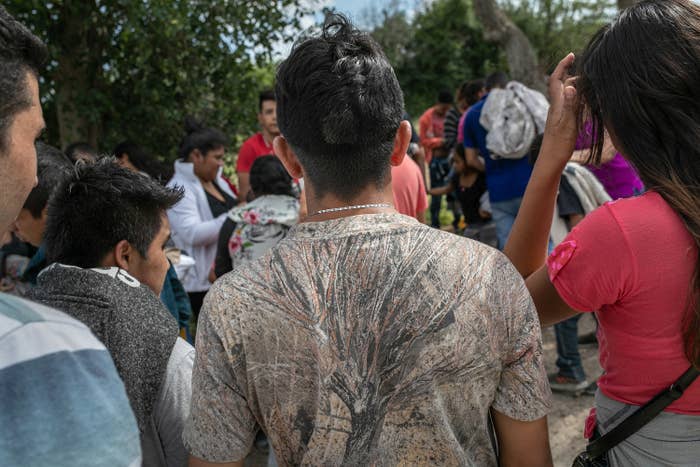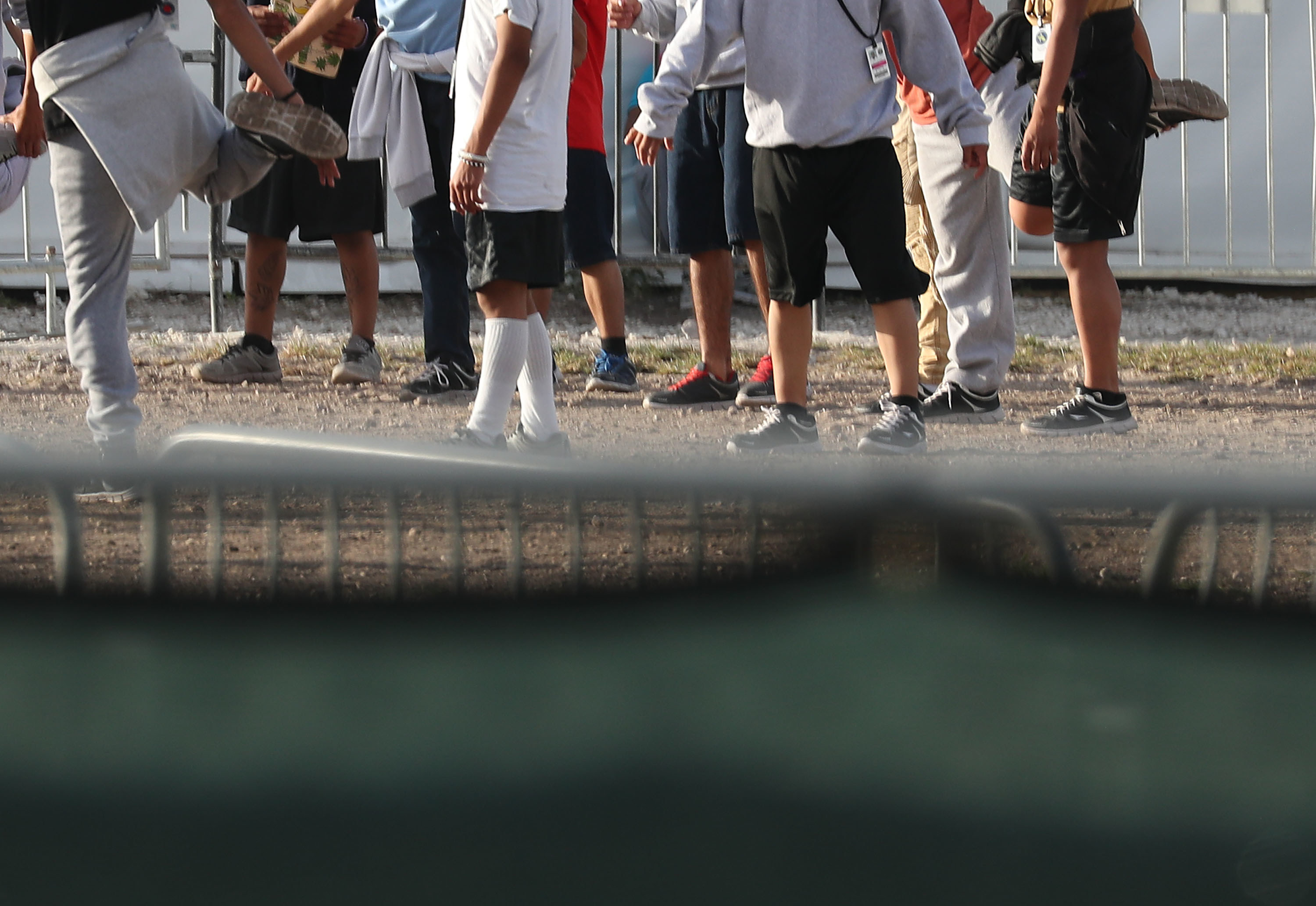
The journalists at BuzzFeed News are proud to bring you trustworthy and relevant reporting about the coronavirus. To help keep this news free, become a member and sign up for our newsletter, Outbreak Today.
In a major departure from previous practice mandated by federal law, the Trump administration has begun quickly deporting immigrant children apprehended alone at the southern border.
Administration officials say they are following public health orders designed to prevent the spread of the coronavirus in the US, but opponents say they are using the health orders to skirt federal laws that govern the processing of unaccompanied minors.
The New York Times first reported that the Trump administration would apply to unaccompanied children from Central America a March 20 order issued by the Centers for Disease Control and Prevention (CDC) that bars the entry of those who cross into the country without authorization.
Previously, unaccompanied children from Central America picked up by Border Patrol agents would be sent to the Office of Refugee Resettlement (ORR), where they would be housed in shelters across the country as they began officially applying for asylum and waited to be reunited with family members in the US.
On Monday, a US Customs and Border Protection official confirmed to BuzzFeed News that the agency was now applying the CDC order to children.
“All aliens CBP encounters may be subject to the CDC’s Order Suspending Introduction Of Persons From A Country Where A Communicable Disease Exists (March 20, 2020), including minors,” read a statement from CBP. “When minors are encountered without adult family members, CBP works closely with their home countries to transfer them to the custody of government officials and reunite them with their families quickly and safely, if possible.”
The statement noted that there is discretion for the agency to exclude certain unaccompanied children from the order if, for example, they show signs of illness.

Immigrant advocates told BuzzFeed News they were alarmed at the policy shift.
“Children arriving at the border, many of whom have endured unimaginable harm at home and on their journey, are the most vulnerable group encountered by border officials. Unaccompanied children are particularly vulnerable to trafficking,” said Aaron Reichlin-Melnick, a policy analyst at the American Immigration Council. “The answer to coronavirus cannot be to put children in harm’s way."
Eleanor Acer, the refugee protection director at Human Rights First, said the move was proof that the Trump administration was “using” a public health crisis “to advance their long-standing goal of overturning US laws protecting vulnerable children and people seeking asylum.”
If you're someone who is seeing the impact of the coronavirus firsthand, we’d like to hear from you. Reach out to us via one of our tip line channels.
Government data obtained by BuzzFeed News indicates that current referrals of unaccompanied children from the Department of Homeland Security (DHS) to the US refugee agency are especially low. On Sunday, just four unaccompanied minors were referred to ORR shelters. DHS averaged 14 referrals a day over the past week, a drop of 78% from the previous month.
“This is a drastic drop in referrals, especially compared to 2019, when well over a hundred unaccompanied children were referred to ORR each day,” said Sarah Pierce, an analyst with the Migration Policy Institute. “While it likely reflects decreased arrivals at the southern border, it also suggests that many are being refused entry, in direct contravention of federal law.”
The ORR referral process was created by the Trafficking Victims Protection Reauthorization Act, which was signed by then-president George W. Bush in 2008. Under the law, CBP officials are generally required to refer the children within 72 hours to the US refugee agency.
On Monday, several leading Democrats called on the Trump administration to clarify the new process.
“Reports that DHS is not following the TVPRA are deeply troubling,” wrote Sens. Dianne Feinstein and Dick Durbin, along with Reps. Jerrold Nadler and Zoe Lofgren, in a letter sent to acting DHS Secretary Chad Wolf on Monday. “We have an obligation to ensure the health and safety of these children. Children do not have to be put in harm’s way to protect us from the coronavirus pandemic. DHS has the ability and capacity to protect both these children and the public. We request that DHS stop this practice immediately.”
There are more than 3,500 unaccompanied immigrant children currently in the custody of ORR.
On Wednesday, attorneys filed a legal request in court to force the ORR to release unaccompanied children in government custody due to risks associated with COVID-19, the disease caused by the novel coronavirus.
On Saturday, a federal judge ordered the Trump administration to make every effort to “promptly and safely” release the children to their family members and sponsors.
Silvia Verónica Raquec Cum, migration coordinator for with Asociación Pop No'j, a non-profit that works with deported immigrants in Guatemala and indigenous communities, said the practice of immediately sending unaccompanied minors back to their countries is not only preventing them from accessing the US asylum system, but also endangering their communities.
Recently returned unaccompanied minors who weren't showing symptoms of the virus were monitored for three days at a shelter for children before being released to their family, Raquec said, but people with COVID-19 may not start to show symptoms until much later when they're back in their communities.
"It's especially worrying for those from rural and indigenous communities, which is where most people are migrating from, because there's a lack of access to clean water and food," Raquec told BuzzFeed News. "It's harder for people in poor rural communities to stay home because they have to go out to work to feed their families."
Adolfo Flores contributed reporting.
